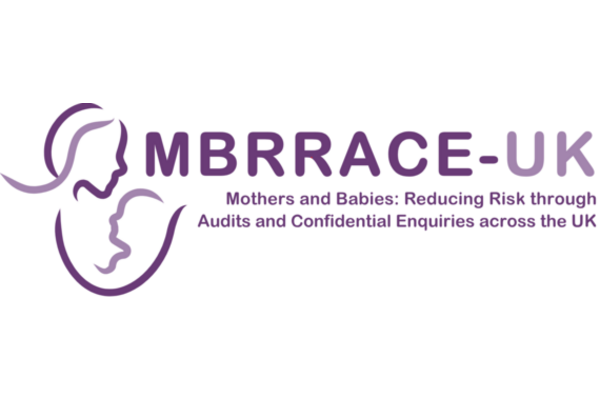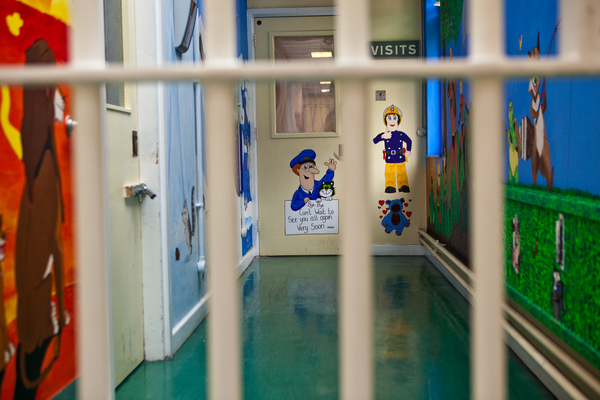Women facing deprivation and disadvantage more likely to die in pregnancy and birth
This years' MBRRACE-UK report shows social inequalities widening, and deaths from suicide and substances increasing
Latest evidence from the annual investigation into the deaths of women during pregnancy, childbirth and the year after birth shows stark and widening inequalities linked to poverty and disadvantage.
The latest MBRRACE-UK ‘Saving Lives, Improving Mothers’ Care’ report, published today, highlights the fact that women living in the most deprived areas are more than twice as likely to die than those in the most affluent parts of the country. Ethnicity-linked disparities remain stark, but they have narrowed since the previous report. So it is all the more alarming to see the opposite trend for women facing poverty and deprivation.
One in five (20%) of the women who died had involvement from social services, a marker of high levels of vulnerability and trauma. More than one in ten (11%) were recorded as experiencing ‘severe and multiple disadvantage’ based on available data on issues such as a mental health diagnosis, substance use and domestic abuse. This is, as the report states, ‘known to be an underestimate… due to poor data collection on these and other factors’.
The leading direct cause of death is suicide, which has risen three-fold since 2017-19 among women who are pregnant or within six weeks of a pregnancy ending. Severe mental health issues were a factor in 40% of the deaths between six weeks and a year after pregnancy. The study shows more than one in ten (11%) of those who died by suicide, and 59% of those who died through substance misuse had had an infant removed into care and/ or ongoing care proceedings. In several instances, this removal led to an escalating pattern of mental health issues, substance misuse and domestic abuse. In 38% of all cases, assessors said improvements in care may have made a difference to the outcome.
Birth Companions, a leading charity focused on the experiences of women who face severe disadvantage during pregnancy and early motherhood, says the reasons behind these high and rising figures need urgent investigation. The charity’s Director Naomi Delap says:
“This maternal deaths report is a damning indictment of the government’s failure to focus on the social determinants of health, and to invest in mental health support and wraparound services for women living in the most challenging circumstances. The mortality rate among women living in the most deprived areas has increased even before we reckon with the impact of the cost of living crisis and austerity 2.0. This should be a huge wake up call for national and local government and our NHS.”
Evidence from the Nuffield Family Justice Observatory’s ‘Born into Care’ study has shown the number of infants being separated from mothers at or shortly after birth has more than doubled since 2008. Assessors in the MBRRACE report note that postnatal support for women who had their infants removed from their care is severely lacking, including mental health services. The authors state that fears of child removal often influenced women’s willingness to disclose symptoms of mental ill-health or substance misuse, and these fears need to be better recognised and responded to by health professionals.
Delap added:
“Continuity of specialist mental health care throughout pregnancy and early motherhood should be an absolute priority, as should specialist care for women at risk of being separated from their children, or who have children removed. These women are often victims and survivors of trauma and abuse and many have been in the care system themselves. Most are given little or no support to address the concerns that lead to the removal of their babies. They are the forgotten mothers, left to cope with the loss of their children on their own.
“Women who are receiving specialist perinatal mental health support lose that support as soon as their child is removed, and they go back onto waiting lists for generic adult mental health provision. That can’t be right, and I have no doubt that the lack of specialist services for these hugely vulnerable women is behind at least some of the deaths featured in this report.”
As in previous maternal mortality reports, around a third (28%) of women who died had no information recorded on whether they were subject to domestic abuse before or during pregnancy.
Naomi Delap said:
“Enquiry about experience of domestic abuse is meant to be a routine part of maternity care. The failure to follow through on this illustrates the paucity of assessment of women’s wider health and social needs in maternity care. We need an urgent focus on understanding the factors at play behind these inequalities. This should be developed through the collection of better data on the social factors impacting on women’s health, and listening to women’s experiences.
"It is deeply concerning that so many of the recommendations made in this year’s report are, once again, drawn directly from existing guidance, meaning they should already be happening. It reminds us of the need to ensure implementation and scrutiny, and to challenge assumptions that having something ‘written down’ means it will be delivered in practice.
“This publication comes just weeks after reports that the Department for Health and Social Care has scrapped the long-awaited White Paper on Health Disparities. This is a question of reproductive justice; currently, some women’s lives are deemed more valuable, and more worth investing in, than others. It’s time for us to do better, and to ensure reproductive justice for all women.”
Download the full report and lay summary here, and find out more about MBRRACE-UK here.
For more information, or to discuss anything further, please contact Kirsty Kitchen.





